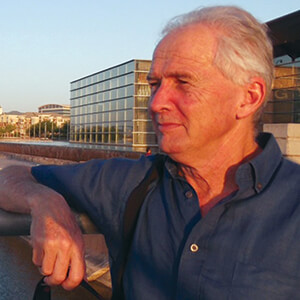There is a causal link between poor literacy and poor education, alcohol and substance abuse, poor health and high mortality.”

Associate Professor Bob Boughton, Contextual Studies in Education, School of Education, UNE
UNE’s Associate Professor Bob Boughton was part of a large, international team in Timor-Leste where more than 200,000 people graduated from the program in five years. Unlike other literacy programs, the Literacy for Life campaign focus is on helping to build a community culture that values and supports learning. By working collaboratively with local organisations, government agencies, councils, church groups and elders, the campaign seeks to build towards the common goal of enhancing literacy levels for all adults in the community.
This year, with funding from the Australian Research Council (ARC), UNE researchers Adjunct Professor Jack Beetson, a senior Ngemba man from Brewarrina, Associate Professor Bob Boughton and UNE’s Dr Lorina Barker, a Wonkamarra woman with family links to the region, and their team, are taking the program a step further by studying the links between the literacy campaign and improvements to community health and wellbeing.
The results from the town of Wilcannia, in Western NSW, were impressive: ‘We found that giving participants skills in reading and writing improved their social skills, increased their employment chances and, importantly, decreased rates of incarceration. These results are well recognised anecdotally. With the ARC Linkage grant we recently received, we now have the capacity to formalise them and influence policy at the federal level,’ said Associate Professor Boughton.
Going forward, the research involves an extensive community health study aimed at measuring the broader health and social benefits of the program. Researchers will examine the relationship between literacy levels and the everyday lives of Aboriginal communities in order to understand how Indigenous adult literacy may operate as a determining factor in Indigenous health and wellbeing. According to Associate Professor Boughton, ‘In effectively addressing health issues, you often must treat underlying social problems. The adult literacy campaign, Yes I Can, has been doing this since 2012 and now we will have the evidence to show it.’
The program boasts completion rates of more than 70%, a rate much higher than the retention rates of formal training programs in the region. On the back of this initial success in Wilcannia, Literacy for Life is now expanding the Yes I Can program to New South Wales Aboriginal communities in Bourke, Enngonia, Brewarrina, Weilmoringle and Walgett.

